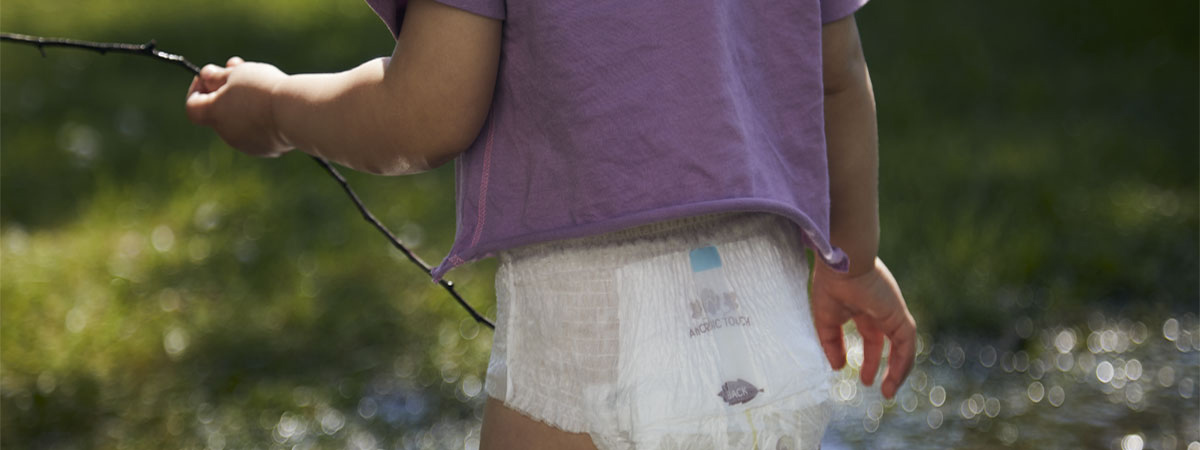Nicotine, smoking and babies
Most people know that smoking is harmful. But what do you do if the people around you haven’t realised that their smoking around your baby matters – how do you talk to someone who doesn’t want to give up their cigarette when they come to visit, is it possible to deny a smoker the chance to hold the baby? And what about smoking outdoors?
Smoking is still a loaded topic, even though it is known to be dangerous on many levels. An infant exposed to second-hand smoke is more likely to suffer from sudden infant death syndrome, asthma and respiratory diseases, among other things. It is not only the smoke itself that is harmful, but also the nicotine that gets on hands, clothes, hair… So there is no doubt that tobacco should be kept far away from babies and children. But sometimes this can be easier said than done.
It’s not just tobacco smoke that’s harmful
It is easy to understand that passive smoking around a baby is not a good idea. But even the nicotine from tobacco smoke – which settles on furniture, clothes and other textiles – continues to form carcinogens long after it has been smoked in a room. Smoke residues can release harmful chemicals for months. It also remains in the air you breathe for a long time, which means that opening a window or switching on the extractor fan unfortunately doesn’t help. ‘Only’ smoking outside when the baby is not with you is also no guarantee that the baby will not be harmed, as hazardous substances will accumulate in your hair, clothes, etc. You should also be aware that nicotine passes into the breast milk of breastfeeding mothers, regardless of whether you use nicotine patches, snuff or cigarettes. And of course nicotine is an addictive substance and quitting can be extremely difficult. If you have tried and tried without success, you might want to know that nicotine patches are the least harmful way to deal with the addiction.
What should I do if others smoke around my child?
The most important thing, of course, is that the child’s parents and others living in the same household do not smoke, as they spend the most time with the child. If you have a partner who can’t or won’t understand the danger, it’s a good idea to ask your healthcare provider for help, as they can usually find a way to deal with the situation. It is also a good idea to establish rules and inform the rest of your family and friends about what applies in your home. Explain to your mother-in-law, grandfather or whoever that nicotine also gets on their clothes and hands – even if they smoke outside. If they can’t manage to refrain from smoking, you’ll have to find a rule that works for you as the parent, perhaps a condition for them to be able to cuddle and play with the baby is that they must wash and change their clothes first.
The clearer you make the rules about tobacco in your home and around your baby, the easier it is for others to understand and accept. Visitors want what’s best for the baby! Also, keep in mind that smoke from a waterpipe is just as harmful as other tobacco smoke. When it comes to e-cigarettes, we have less data to go on, but studies suggest that vapour from e-cigarettes negatively affects airway cells.
Facts about smoking and nicotine around babies
We know that it can be difficult to discuss smoking with your loved ones, as smoking is a big part of your personality, a habit and often something you have done for many years. This is why it might get taken personally when you tell someone that they can’t cuddle your baby because they smoke. But trust your gut feeling and know that you can set the limits where you think they belong. If you feel that you need some facts to support your arguments about how tobacco smoke and nicotine harm a baby, we have listed some points below.
- The risk of sudden infant death syndrome is two to three times higher if those sleeping with the baby use any form of nicotine. In fact, it seems that nicotine is the most important factor here, which means that snuff and nicotine patches should also be avoided. The use of snuff and smoking during pregnancy has also been shown to increase the risk of sudden infant death syndrome.
- Passive smoking is harmful to everyone, but children are particularly vulnerable to tobacco smoke because their immune systems are not fully developed and their airways are narrower.
- The risk of asthma and allergies is significantly higher if you live in a home where someone smokes.
- Children of a parent who smokes are more likely to get respiratory infections.
- Children exposed to tobacco smoke are much more likely to suffer from repeated ear infections and are also more susceptible to ear and throat infections.
Please note that all information above is based on Swedish recommendations.

